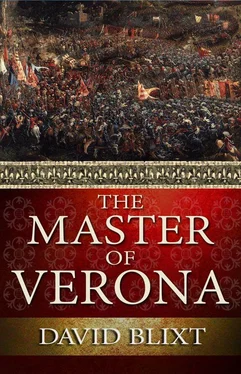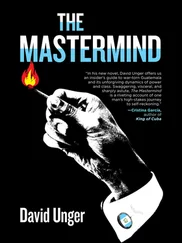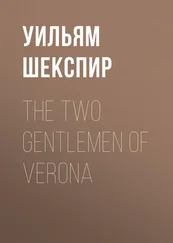David Blixt - The Master of Verona
Здесь есть возможность читать онлайн «David Blixt - The Master of Verona» весь текст электронной книги совершенно бесплатно (целиком полную версию без сокращений). В некоторых случаях можно слушать аудио, скачать через торрент в формате fb2 и присутствует краткое содержание. Год выпуска: 2012, Издательство: Sordelet Ink, Жанр: Исторические приключения, на английском языке. Описание произведения, (предисловие) а так же отзывы посетителей доступны на портале библиотеки ЛибКат.
- Название:The Master of Verona
- Автор:
- Издательство:Sordelet Ink
- Жанр:
- Год:2012
- ISBN:нет данных
- Рейтинг книги:5 / 5. Голосов: 1
-
Избранное:Добавить в избранное
- Отзывы:
-
Ваша оценка:
- 100
- 1
- 2
- 3
- 4
- 5
The Master of Verona: краткое содержание, описание и аннотация
Предлагаем к чтению аннотацию, описание, краткое содержание или предисловие (зависит от того, что написал сам автор книги «The Master of Verona»). Если вы не нашли необходимую информацию о книге — напишите в комментариях, мы постараемся отыскать её.
The Master of Verona — читать онлайн бесплатно полную книгу (весь текст) целиком
Ниже представлен текст книги, разбитый по страницам. Система сохранения места последней прочитанной страницы, позволяет с удобством читать онлайн бесплатно книгу «The Master of Verona», без необходимости каждый раз заново искать на чём Вы остановились. Поставьте закладку, и сможете в любой момент перейти на страницу, на которой закончили чтение.
Интервал:
Закладка:
All the men at the table sat quietly for some time, chewing upon their meals and their thoughts. At last Francesco Dandolo spoke, his voice a dreamy whisper. "Have you ever been to sea? Being Venetian, I find the best example of the power of the stars is at sea. Upon the water, the stars are both the guide and the enemy. They give the sailor a map to his destination while at the same time they stir the seas he sails on. They show the path, at the same time creating obstacles to that path."
Cangrande's eyes narrowed as he listened. "They show the prize, then strip it away."
Hoping to avert the Scaliger's curiously ill thoughts, Pietro turned to Dandolo. "The stars don't always make the seas rough, do they? Couldn't they create a smooth course just as easily? Why must they be the enemy?"
The Capitano's head swiveled. "Quite right. Why must they?"
Il Grande chose to follow an earlier thought. "Still, the choice is theirs. The stars choose which men to aid, which to oppose. What does it say about the men they befriend? Are those men more capable, or less?" His eyes met Cangrande's. "Which did they do for you, lord Capitano?"
"I don't know," replied Cangrande. "Some men would say they favor me."
"But what do you say?"
Cangrande pursed his lips. "Can a man ever know the Lord's will?"
"It would arrogance to try," observed Mussato. "His will is a mystery. Man's fate is up to God alone."
"But that denies free will," countered Dante, "a concept that the Church does allow for. A man takes active participation in deciding his own fate. Or else what's the point of living?"
Mussato leaned as far forward as his injuries allowed. "Ah, but what if he chooses a different interpretation of that fate than God intended? A man meant to be a soldier becomes a farmer. Will the stars oppose him? Will God?"
The Scaliger pointed. "What do you say, Pietro?"
Pietro hadn't realized his expression had altered so much as to draw attention, and he was too embarrassed to share his thought. "I–I don't know. I do know that my father has a very strict view on astrology."
The Scaliger threw Dante a sly glance. "I know. Soothsayers get tossed into the infernal ring reserved for fraud."
"There is a specific distinction," corrected Dante. "A soothsayer is not an astrologer, but a reader of entrails. That is superstistion. Astrology is a science, one I adhere to. But, like priests, there are good and bad astrologers. The only astrologers I condemn are the ones who try to alter the will of Heaven, or else try to curry favor by creating prophecies out of whole cloth."
"Poor Manto!" cried Bonaccolsi. "Dante, throw us a bone!"
"I did — hers."
There was some little hilarity at this remark, but Cangrande was undeterred. Clapping his hands together, he divided the air in front of him. "Where is the line, poet? As someone who finds himself accused of being a figure from a prophecy, it concerns me deeply. What separates the active interpretation you advocate from the willful disobedience you deplore — or, should I say, He deplores?"
Dante wore his best enigmatic expression. "I suppose it comes down to the will of the Lord."
The Scaliger's mocking grin grew wide as he shook his head in disgust. "As always, poet, you wax eloquent on broad themes but on specifics remain cryptically obtuse."
Dante spread his hands. "Of course, my lord. What else are poets for?"
The supper went on, course after course, and conversation wandered into easier topics, no less hotly debated. There were discussions of battle tactics, of women, of politics, of wine. The meal ended with a second fricatella, apple this time, and a vigorous debate over the fate of the Knights Templar. Their order had finally been stamped out earlier in the year by King Philip IV and his puppet pope. Jacques de Molay, Grand Master of the Knights Templar, had been sentenced to burn at the stake for heresy. Before falling to the flames he proclaimed his innocence and declared that God would be his avenger, calling down a curse upon the French king and his issue down to the thirteenth generation. His last words were a summons for both King Philip and Pope Clement to meet him at the seat of God's judgment before the year was out.
The whole affair was forgotten until Clement dropped dead less than a month later. Pietro remembered the frantic editing, the numerous messages sent to all the hired copyists, as Dante added a prophecy of the pope's death to the nineteenth canto.
The men seated about the Capitano's supper discussed the prospects of the demise of the French monarch with surprising relish. Though all were skeptical of the Templars, not a one held a doubt as to the cause of their ultimate destruction. The Knights had fallen thanks to the greed of Roi Philippe le Bel — Philip the Fair.
Pietro listened, trying to absorb the thoughts of these great men. The whole evening had amazed him. Not just the debates, but the camaraderie. Not three days past Asdente had tried to split Cangrande's skull, but here was the Scaliger treating him like a beloved cousin. Il Grande was courteous and friendly and seemed to truly enjoy Cangrande's company. Mussato had visibly relaxed, relishing the evening as much as his injuries allowed. Even the sullen Marsilio had perked up when the talk had shifted to battles won and lost.
The only exception was the Venetian. Cangrande needled Ambassador Dandolo at every opportunity. Cheerfully, playfully, with a veneer of civility. But mercilessly.
Eventually the meal broke up. Marsilio da Carrara was the first to rise, perfunctorily asking his uncle's permission to retire. He didn't glance back as he left the hall. Asdente and Passerino headed back to the salon for a game of dice. Dandolo and Il Grande helped Mussato to his feet, from whence a bevy of servants conveyed him to his 'cell,' as Cangrande jokingly put it. No prison ever had the luxuries the Paduans were presently enjoying. The Capitano clearly believed in killing his enemies with kindness.
Cangrande was still talking to various servants when Dante approached his son. "How are you feeling, boy?"
"Fine, pater ," replied Pietro, trying not to picture what was going on under the bandage on his leg.
"Good," said Dante gruffly. "Then I'm going to bed." He glanced up at his son's bare head. "The new hat?"
"Lost on the road," said Pietro.
"Mmm." With a pleased smile Dante departed.
Finished instructing the servants, Cangrande turned to Pietro. "Staying up? Then let us return to your perch on the porch."
Back under the portico, a fresh brazier beside them, Cangrande said, "You were fairly quiet tonight, Pietro."
"I didn't have much to add."
"Take it from one who knows, lying is a bad habit to fall into. You had plenty to say. And not just to Marsilio," he added wickedly.
Pietro felt his face grow warm. "I was the youngest there — "
"Marsilio only has a couple of years on you and you're infinitely better mannered. So, what was it you were thinking?"
"It — it's about — when you all were discussing the stars," said Pietro hesitantly. "You asked where the line was, between interpretation and willful disobedience. Perhaps — " He stopped short, his words inadequate to express the idea in his head. But the Scaliger was waiting. "Maybe it's a little of both. A man may not deny what the heavens have in store for him, as a sailor cannot control the waves. But he can choose what he does when the waves hit."
Cangrande seized the thought. "You mean that, though the stars may give him a map, it is up to him to follow it."
"Something like that," nodded Pietro. "But more than a map. Fate throws an obstacle in our way. We decide how to deal with it. That's our free will. We cannot fight Fate, but we can choose our reaction to it." Grinding to a halt, he realized how stupid he sounded as he watched Cangrande kindly turning his words over and over, as though they were worth considering.
Читать дальшеИнтервал:
Закладка:
Похожие книги на «The Master of Verona»
Представляем Вашему вниманию похожие книги на «The Master of Verona» списком для выбора. Мы отобрали схожую по названию и смыслу литературу в надежде предоставить читателям больше вариантов отыскать новые, интересные, ещё непрочитанные произведения.
Обсуждение, отзывы о книге «The Master of Verona» и просто собственные мнения читателей. Оставьте ваши комментарии, напишите, что Вы думаете о произведении, его смысле или главных героях. Укажите что конкретно понравилось, а что нет, и почему Вы так считаете.












